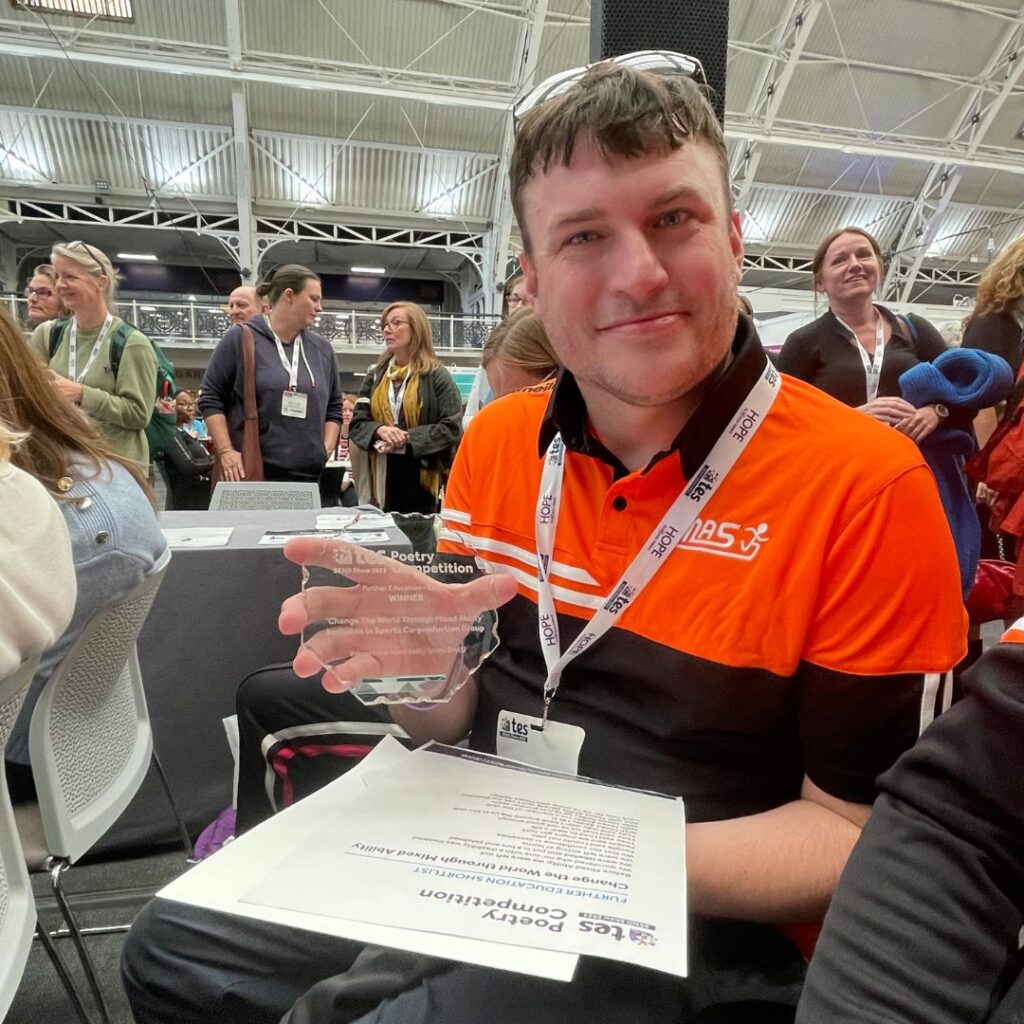IMAS series: Sam Prowse

Mixed ability rugby means a lot to Sam Prowse, so much so that he has a collection of rugby-themed tattoos on his body.
He has the Mixed Ability Rugby Invitationals logo on one leg after he represented the MARIs in their inaugural game in December 2021, as well as the Letchworth Rugby Club logo paying tribute to how much his local team has positively impacted his life.
He also has the International Mixed Ability Sport [IMAS] rugby ball inked on his arm, representing the wider mixed ability world that he advocates for through his role as a trainer.
Mixed ability sport gave Sam a platform to learn more about himself and connect with other people, and he now plays rugby two to three times a week, including training with the Letchworth third team, as well as basketball on Sundays.
“There’s a feel-good factor of sport,” he said.
“It brings friendships; I wouldn’t play basketball if I had not met my friends playing rugby. It’s the journey, the connections, and what’s really awesome with IMAS and mixed ability is the links, as I have friends across the country and across the globe which is really special.
“It’s also being part of a special club that feels good, with a good atmosphere, and if I didn’t have those things life could be quite lonely. Sport is a really good avenue for me and everyone there has a mutual interest so you can talk about it, even though friendships can be harder for me to form.
“Two of my closest friends are from playing sport together, playing for the Braveherts [Letchworth’s mixed ability team], and that’s really awesome. My brother plays rugby as well and before playing mixed ability together our relationship was quite broken, so I’m really thankful that we had rugby to bring our relationship back together.
“Sport is more than just sport, and if you are into sport you really understand that.”
It is these first-hand experiences that have since prompted Sam to team up with IMAS and become a trainer for professionals in different industries, including healthcare and schools, to show the power of sport and mixed ability.
“They need to be able to see the benefits of what sport and mixed ability can do. That feel-good factor and friendships are really important.
“We know on paper that people who exercise have more healthy lives, but if I can share my struggles, professionals can use the knowledge of people who come from a group with more inequalities.
“Some people struggle with exercise, but there is always exercise people can do, it’s just trying to find the right thing. That’s where IMAS is really good; we started in rugby but we branched out into many different avenues, like swimming and squash.
“I played sport in secondary school and that was OK, but it didn’t feel right for me at the time. It wasn’t striking the same balance as what I liked, but mixed ability involves people from such wide, diverse backgrounds.
“There are barriers that people come across in all aspects of life, having learning difficulties or other neurodiversities, or having fallen out of love with the sport and wanting to come back, or being a total novice to the sport and looking for the right option in; mixed ability is a welcoming way of encouraging people to not shy away from sport.”
Sam spoke fondly of reflecting on moments in life, and a particular day at Letchworth when he met a rugby teacher from his secondary school who was glad to still see him continuing his hobby on the field.
It’s looking back to the good times, and to the more difficult times, that have helped Sam find the values that he holds dear. For example, when the COVID-19 pandemic hit, he was quick to set up a WhatsApp chat at the club to help combat the isolation that people were feeling.
“As a youngster I was told a lot of things that I couldn’t do, and people made judgments. But there’s a lot I’ve learnt through sport, like actually learning that I can do it.
“I’ve also learnt about leadership as a captain, taking a lot of responsibility for the team, and it grew my confidence.
“Sometimes people can be scared to step outside of their comfort zone, but it’s important to do that, because sometimes you can find stuff that’s a real joy and a pleasure, and you wish you’d done it a lot earlier.
“It’s important that you do things that are really enjoyable. Life can be really difficult at times, like during the pandemic when lots of people were lonely and we were heavily restricted in what we could do, so it’s really important to remember that we’ve had these tough times and to grab life by the horns and enjoy it.”


